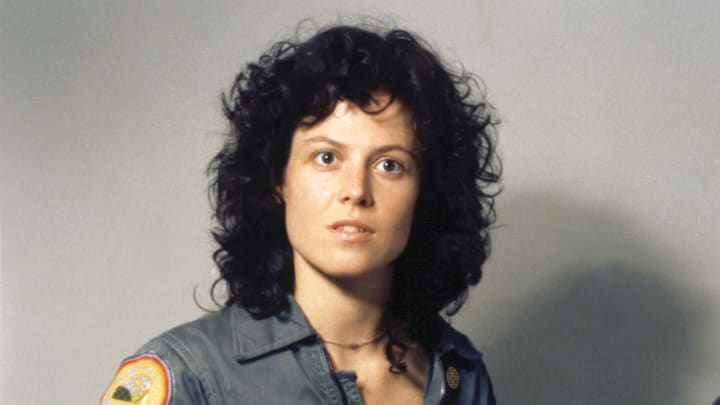Ever since the release of the original Ridley Scott-directed 1979 film, Alien has felt like an expansive universe full of potential.
Even before it was a franchise in its own right, even just that first film in and of itself felt gargantuan and as if it encompassed a whole host of other intergalactic terrors; from the facehugger to the Xenomorph to the ‘Space Jockey,’ the film was bursting at the seams with visuals, designs, and story ideas that positively lit the imagination on fire.
As such, any follow-up was always going to experience a bit of pushback, firmly defining elements of this story that had been up to an individual’s subjective interpretation before.
Everyone has their own relationship with these various Alien projects. People have loved James Cameron’s Aliens ever since its release in 1986, and it certainly isn’t hard to see why; the movie rips, delivering one of the most wholly satisfying blockbuster experiences of the past forty years.
Additionally, while Alien 3 was met with a highly divisive reception in 1992 (including from its own credited director, David Fincher) it has since seen a drastic re-evaluation, in which many fans standby it as an under-sung classic. Even Ridley Scott’s own Prometheus, which was met with vile reactions full of disdain from many fans upon release in 2012, has since become much more appreciated. But one installment that still seems to largely go under the radar is that prequel’s 2017 follow-up, Alien: Covenant.
Alien: Covenant is the most underrated Alien movie
Not only do I love Alien: Covenant in all of its idiosyncratic, two-Michael-Fassbenders-playing-a-single-flute-together glory, but I also genuinely think it could have and should have been a massive hit with franchise fans and general audiences alike. I know that’s a strange thing to say for a film this odd, but bear with me here.
Because I believe that the marketing for Alien: Covenant was its own worst enemy, and did a lot to obfuscate many people’s first impression of this film. As such, it deserves your attention, because I guarantee it is better than you remember.
Why do people not like Alien: Covenant? Well, at the time of release in 2017, the general consensus was that the film was an unsuccessful blend of more traditional Alien elements and the more thematically saturated, existential qualities of Prometheus. However, I don’t think that’s true at all; I think that entire critique is rooted in false impressions given by the marketing of the film.
When Ridley Scott first began work on this film, it was to be titled “Prometheus: Paradise Lost,” which is frankly a much better title in just about every way. Because the truth is, Alien: Covenant is far more of a Prometheus sequel than it is an Alien film for the vast majority of its run. In fact, the Alien-heavy portion of the film doesn’t come until the third act, and everything about it (within the confines of the text of the actual film itself) is set up as a surprise reveal.
The story of Alien: Covenant centers on a ship that answers a cryptic distress signal (“That’s f****** John Denver,” as Danny McBride’s character unforgettably shouts upon hearing it) and finds Michael Fassbender’s character from Prometheus, David, as the only living (albeit artificial) soul on the planet.
Gradually, the mystery of how David got here, what happened to Shaw (Noomi Rapace’s protagonist from Prometheus) and the courtyard full of mummified Engineers (who were a focal point of Prometheus’ whole story) is unraveled, all while the team is preyed upon by a brand-new creature, the Neomorph. Things escalate as the story heads into the third act, and it is ultimately revealed that not only has David been using the Engineers’ technology to create creatures, but that he has ultimately designed the seemingly first-ever face-hugger and Xenomorph.
In this way, the film builds up to the overt incorporation of these elements as a surprise, one that would’ve taken audiences by storm considering that they were left entirely absent from Prometheus. However, that isn’t what happened, because every single element of the marketing for Alien: Covenant, from the posters to the trailers right down to the name itself, was so eager to reveal that the Xenomorph was back that it ruined the entire surprise.
Even worse, because the marketing was so Xenomorph-heavy, many fans went in expecting a full-blown Xenomorph movie, and were left disappointed when it didn’t show up until the final stretch. This is a real shame, because Alien: Covenant makes the absolute most of its Xenomorph-featuring finale. In fact, I would argue, it’s probably still the best-looking and most technically accomplished Xeno set piece of the entire franchise. But people couldn’t appreciate just how rip-roaring the whole thing was, because they were too busy feeling betrayed by the misleading and horribly miscalculated marketing.
Alien: Covenant is like a perfect bridge between Prometheus and Alien, while still allowing Ridley Scott the chance to delve even further into the existential themes he’s been so fascinated by in this latter phase of his career. It’s a film overtly about the terror of creating such an enduring monster, made by the filmmaker who literally created this enduring monster in real life with Alien all the way back in 1979.
To this end, I find Alien: Covenant to be a blistering thrill-ride of a science-fiction horror film that is also bursting at the seams with larger-than-life ideas, explorations of ambitious themes, and never anything less than thought-provoking.
If you are someone who felt burned by Alien: Covenant upon initial viewing, I implore you to give it another shot. It’s a glorious, gonzo oddity, and one whose uniqueness has only become increasingly apparent in the years since.
